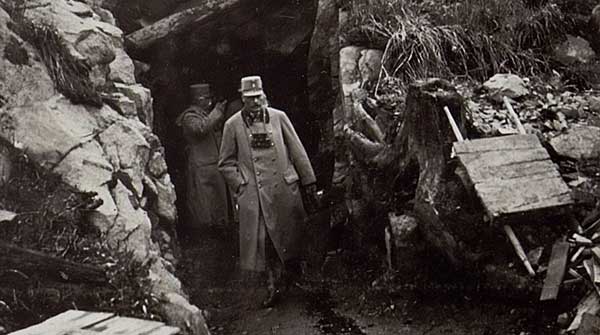The divisions we believe exist between us are artificial
 Christmas is the time of year when human beings put aside their differences and come together. It is difficult to find a truer example of this essence of our character than during the first winter of the First World War.
Christmas is the time of year when human beings put aside their differences and come together. It is difficult to find a truer example of this essence of our character than during the first winter of the First World War.
Ordinary soldiers on both sides of the conflict, much to the chagrin of their commanding officers, walked out of their trenches, crossed the deadly “no man’s land” all along the front lines, and celebrated the birth of Jesus together.
The truth is the divisions that we believe exist between us are artificial. Perhaps the greatest way we can honour the heroes of Christmas 1914 is to see beyond disparaging myths that are spun for us today and come out of our trenches to embrace our shared humanity.
No place in the world is the ironic stupidity of division better seen than in the Middle East. Christians celebrate the birth of a child in Bethlehem in the first century and call him the saviour of the world. When a child is born in Bethlehem in the 21st century, he is called a terrorist.
 |
| Related Stories |
| Our world was forged in the trenches of the Great War
|
| Silent Night, holy night, all is calm, all is bright
|
| The return of the Armenian Genocide must be stopped
|
We heartily and rightly condemn the aggressions of Russia in Ukraine as well as their efforts to freeze Ukrainian civilians into submission. We should not be surprised by such tactics, however, as Russia has used an alliance with winter to its advantage for centuries. That is how they defeated both Napoleon and Hitler. We need, therefore, to carefully weigh the value of any potential strategic advantages that could be gained by continuing the war against the well-being and safety of precious Ukrainian civilians.
It is also essential to look at the fallout of this conflict in other parts of the world. The current war has weakened Russian influence in the South Caucuses, where Turkey and Azerbaijan surround and continue to menace the Armenian population. Both countries not only do not recognize the Armenian Genocide, but they also explicitly deny that it happened.
Turkish politicians have used the current conflict in Ukraine to present themselves to the world as peacemakers. In addition, the oil embargo against Russia has made Azerbaijani oil and gas more necessary in the European market.
Taking advantage of its growing importance, Azerbaijan has cut off supplies to the Armenian population in Nagorno-Karabakh (also called Artsakh). The impact is much like that in Ukraine; Armenian civilians are freezing. This sort of tactic is never acceptable, and the condemnation of this military strategy must be consistent, regardless of the ethnicity of the victims.
In addition to the people freezing in Ukraine and Artsakh, this Christmas, almost 90 million people are being forcibly displaced in the world, many of them in the northern hemisphere where we are experiencing cold winter temperatures. However, those in the southern hemisphere have other struggles and fears to contend with.
Regardless of the current circumstances, humans are made to co-operate. If a Russian, an American, a Ukrainian, a Turk, an Armenian, and an Azerbaijani were stranded in a winter forest, they would find a way to survive and probably celebrate Christmas together. There are very few exceptions to this rule; the vast majority of people are predominantly good. It is time that our foreign policies begin to reflect this fact.
Despite what our political leaders tell us, despite the message conveyed in the commercial media, it is never acceptable to treat anyone unjustly. There is no nation of deplorables or terrorists; each of us is a mixture of good and bad.
As we celebrate Christmas, may we remember the legacy of the soldiers who embraced their own goodness and laid down their weapons in 1914 to come together and celebrate the birth of a beautiful brown baby boy.
Gerry Chidiac specializes in languages, genocide studies and works with at-risk students. He is the recipient of an award from the Vancouver Holocaust Education Centre for excellence in teaching about the Holocaust.
For interview requests, click here.
The opinions expressed by our columnists and contributors are theirs alone and do not inherently or expressly reflect the views of our publication.
© Troy Media
Troy Media is an editorial content provider to media outlets and its own hosted community news outlets across Canada.

